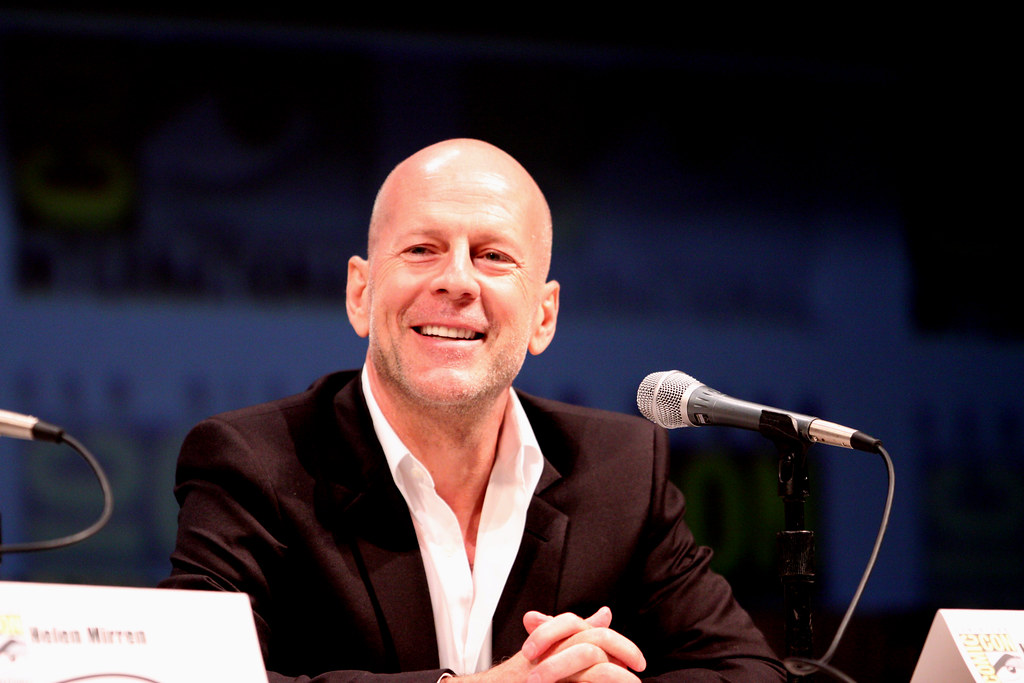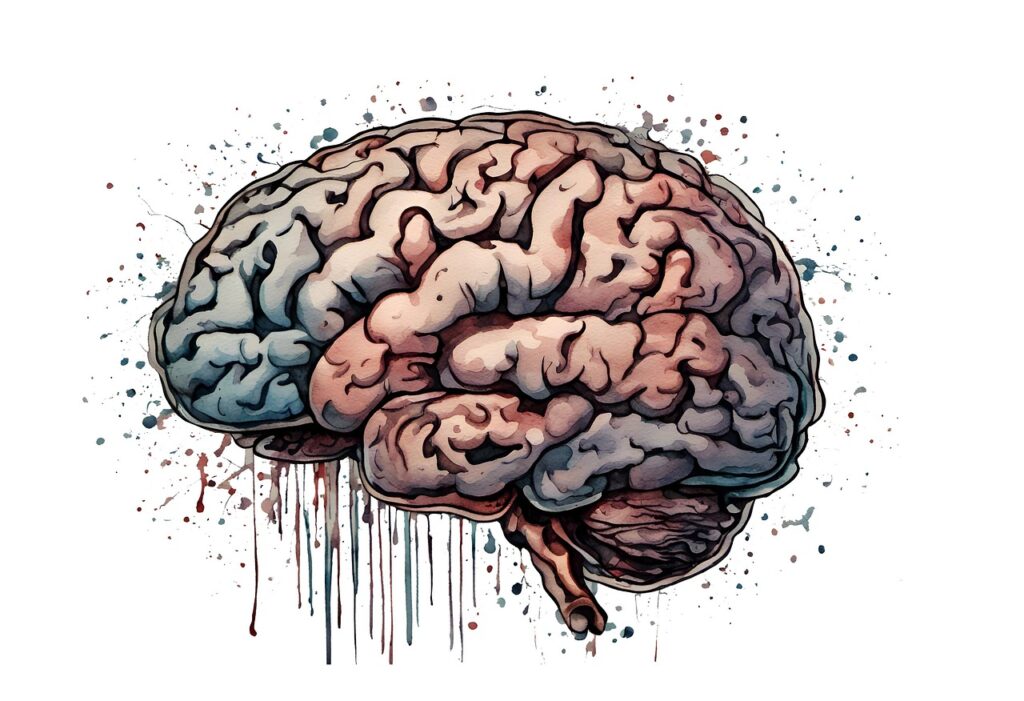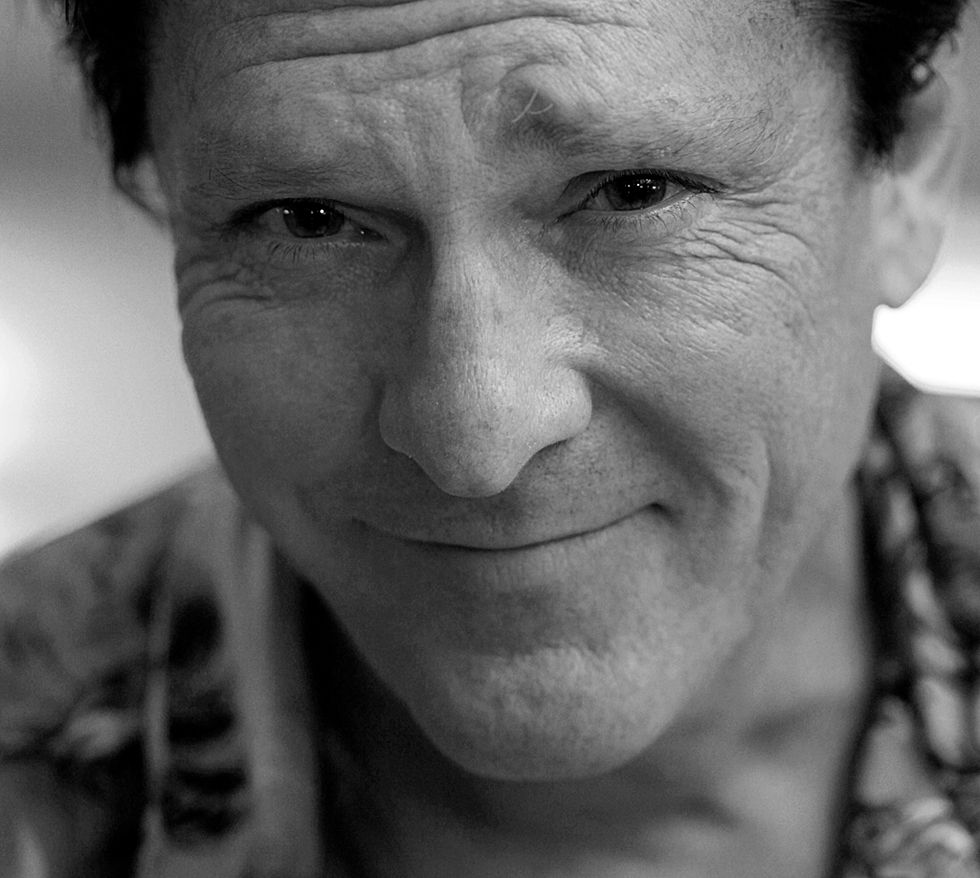
The landscape of Hollywood, often characterized by enduring stardom and robust public personas, has recently borne witness to a profoundly personal and challenging journey for one of its most beloved figures, Bruce Willis. Known globally for his iconic roles in action films and his distinctive charisma, Willis’s transition from a cinematic hero to confronting a progressive brain disorder has captivated public attention, prompting a widespread reflection on health, family, and legacy. The unfolding narrative of his illness, marked by candid disclosures from his family, offers a poignant insight into the realities of neurodegenerative disease.
His health concerns initially came to light in March 2022, with the announcement that he would be stepping away from acting due to aphasia, a condition affecting communication. Less than a year later, the family provided a more specific, and heartbreaking, update: the diagnosis had advanced to frontotemporal dementia (FTD). This progression, revealing a more aggressive and incurable form of dementia, fundamentally reshaped the actor’s life and the dynamics within his family.
This article aims to provide a comprehensive account of Bruce Willis’s health decline, delving into the specifics of his diagnosis, the devastating impact of FTD on his cognitive and physical functions, and the unwavering commitment of his blended family. Through their openness, the Willis family has not only navigated immense personal grief but has also inadvertently become a crucial voice in raising awareness for a disease that remains less understood than other forms of dementia.

1. **The Initial Aphasia Diagnosis and Retirement**In March 2022, a collective statement from Bruce Willis’s family delivered news that signaled a profound shift in the actor’s life and career. Shared across social media platforms, including his daughter Rumer Willis’s Instagram handle, the announcement stated, “To Bruce’s amazing supporters, as a family we wanted to share that our beloved Bruce has been experiencing some health issues and has recently been diagnosed with aphasia, which is impacting his cognitive abilities.” This disclosure underscored the immediate reason for his decision to retire from acting, a career that had spanned four decades and profoundly shaped contemporary Hollywood.
The family’s statement further elaborated on the gravity of the situation, concluding, “As a result of this and with much consideration Bruce is stepping away from the career that has meant so much to him.” This marked a poignant end to a prolific career that saw Willis notch memorable roles in blockbusters such as “Die Hard,” “Pulp Fiction,” and “The Sixth Sense,” endearing him to millions worldwide. The immediate outpouring of support from fans and colleagues underscored his immense impact on the entertainment industry.
In the aftermath of this initial announcement, Hollywood rallied around Willis. His daughter Scout Willis shared her gratitude on Instagram, reflecting on the “depth and breadth of the love we received as a family yesterday,” which brought her to tears. Emma Heming Willis, his wife, also expressed her appreciation, writing, “Your love, support, compassion, prayers really help. I’m grateful.” Even the Razzie Awards, which had previously given him a “Worst Actor” trophy, rescinded it, acknowledging the unique circumstances.
Messages of support also came from prominent figures, including director M. Night Shyamalan, who tweeted, “All my love and respect to my big brother Bruce Willis. I know his wonderful family is surrounding him with support and strength. He will always be that hero on that poster on my wall as kid.” Co-star Hayley Joel Osment from “The Sixth Sense” shared a heartfelt message on Instagram, describing Willis as “a true legend who has enriched all of our lives with a singular career that spans nearly half a century.”
Read more about: The Unbroken Spirit: Emma Heming Willis’ Candid Story of Caregiving and Hope Amid Bruce Willis’ FTD Battle
2. **The Confirmation of Frontotemporal Dementia (FTD)**Less than a year after the initial diagnosis of aphasia, the Willis family issued a more specific and profoundly challenging health update. On February 16, 2023, the family announced that Bruce Willis had been diagnosed with frontotemporal dementia (FTD), clarifying that FTD was likely the underlying cause of his aphasia. This confirmation, shared on their social media pages and the website for the Association for Frontotemporal Dementia, provided a clearer, albeit painful, understanding of his condition.
The family’s statement conveyed both the sorrow and a measure of relief that often accompanies a definitive diagnosis, even one without a cure. They wrote, “Unfortunately, challenges with communication are just one symptom of the disease Bruce faces. While this is painful, it is a relief to finally have a clear diagnosis.” This moment marked a significant turning point, allowing the family to better understand and navigate the complexities of his illness.
In their public message, the family emphasized the cruel nature of FTD, a disease “that many of us have never heard of and can strike anyone.” They highlighted that for individuals under 60, FTD is the most common form of dementia, suggesting it is “likely much more prevalent than we know” due to the years it often takes to receive an accurate diagnosis. This plea for awareness immediately elevated the conversation around FTD into the public consciousness.
Expressing a profound hope for the future, the family noted that there are currently “no treatments for” FTD, but they held onto the belief that this could change in the years ahead. They articulated a clear desire that any media attention Willis receives “can be focused on shining a light on this disease that needs far more awareness and research.” This commitment transformed a private health struggle into a platform for global advocacy, aligning with what they believe Bruce would have wanted.
3. **The Nature of Frontotemporal Dementia (FTD)**Frontotemporal dementia (FTD) stands apart from other, more commonly recognized forms of dementia, such as Alzheimer’s disease, due to its distinct neurological impact and symptom presentation. It is a progressive brain disorder primarily affecting the frontal and temporal lobes of the brain, which are responsible for personality, behavior, and language. Unlike Alzheimer’s, where memory loss is often the first and most prominent symptom, FTD initially manifests through changes in communication, personality, and behavior.
The disease is characterized by a gradual and relentless decline in these cognitive functions. The context provided highlights that FTD “strikes primarily at language, personality, and behavior before memory loss appears.” This differentiation is crucial for understanding the unique challenges faced by individuals diagnosed with FTD and their families, as the early symptoms can sometimes be mistaken for psychiatric issues or other neurological conditions, delaying an accurate diagnosis.
There is currently no cure for frontotemporal dementia, and existing treatments primarily focus on managing symptoms and providing supportive care. The progressive nature of the disease means that over time, individuals often lose the ability to speak, understand language, or move independently. The family noted that FTD is a “cruel disease,” underscoring the relentless impact it has on those afflicted.
As the disease advances, patients may experience a wide range of debilitating symptoms, including mobility issues and a full loss of independence, as detailed in the provided information. This relentless progression underscores the urgent need for further research and the development of effective treatments. The Willis family’s public statements have played a critical role in increasing awareness of this lesser-known yet devastating condition.
Read more about: Bruce Willis’s Frontotemporal Dementia: An In-Depth Look at Care Decisions, Family Dynamics, and Expert Perspectives

4. **The Devastating Impact on Communication and Cognitive Abilities**The progression of frontotemporal dementia has had a devastating impact on Bruce Willis’s ability to communicate and engage with the world around him. Glenn Gordon Caron, creator of the hit TV series “Moonlighting,” offered a poignant description of Willis’s altered reality, stating that it feels as if the actor “now sees life through a screen door.” This metaphor vividly conveys a sense of detachment and altered perception, painting a picture of a man who once embodied an unparalleled “joie de vivre.”
One of the hallmark symptoms of FTD, particularly as it pertains to Willis’s condition, is the profound challenge with communication. His wife, Emma Heming Willis, openly discussed the difficulty in determining whether he is aware of his condition. She explained, “What we know is obviously the disease can start in the frontal or the temporal lobes, like the name signifies. And one of the things the frontal lobe controls is self-insight, so we really don’t know.” This uncertainty highlights the complex and often perplexing nature of FTD, where self-awareness can be among the first faculties to diminish.
Emma further elaborated on the early changes she observed, noting that her husband “was just a little more quiet” in social situations, a stark contrast to his typically “talkative and very engaged” personality. She described moments when “the family would get together, he would kind of just melt a little bit. He felt a little removed, very cold. Not like Bruce, who is very warm and affectionate. To go in the complete opposite of that was alarming and scary,” indicating the subtle yet significant shifts in his behavior and emotional expression.
These insights underscore how FTD systematically erodes the very foundations of a person’s identity and their capacity to interact with others. The disease’s relentless assault on language, personality, and behavior fundamentally alters an individual’s ability to connect, making everyday interactions increasingly challenging for both the patient and their loved ones. The family’s transparency about these struggles provides a candid look into the daily realities of living with FTD.
Read more about: The Unspoken Tragedy: Rosemary Kennedy’s Hidden Life, a Family’s Secret, and a Fateful Medical Decision
5. **The Progression to Advanced Stages: Loss of Speech, Reading, and Mobility**By 2023, reports from loved ones indicated a rapid worsening of Bruce Willis’s condition, a stark reflection of frontotemporal dementia’s aggressive progression. Family sources disclosed moments when Willis struggled to recognize familiar faces, a profoundly distressing reality that underscores the devastating toll the disease was taking on his cognitive functions. This deterioration marked a significant and observable decline from his earlier symptoms.
More recent updates from 2025 paint an even graver picture, confirming that Willis has entered the most severe stages of FTD. News outlets have reported that the actor is now largely nonverbal, unable to hold conversations, read, or even recall aspects of his celebrated past, including his extensive film career. This loss of fundamental cognitive abilities represents a significant erosion of his connection to his personal history and public identity.
Further compounding these challenges are the reports indicating that Willis has also lost the ability to walk without assistance. This development marks a profound shift from the robust action-hero image that defined his career, showcasing the stark contrast between his public persona and the severe physical limitations imposed by his illness. His reliance on full-time care for daily activities highlights the advanced stage of his dementia.
Despite the progressive and severe nature of his illness, his family continues to find moments of connection. In April 2025, while describing his condition as “stable,” they acknowledged the disease’s continued progression. On Father’s Day, Rumer Willis offered a glimpse into these interactions, explaining that although direct communication was difficult, her father still showed moments of recognition and connection, particularly with his granddaughter. These fleeting instances serve as precious reminders of the man they cherish.

6. **The Unified Front of the Blended Willis Family**Perhaps one of the most remarkable aspects of Bruce Willis’s health journey has been the unwavering unity and support demonstrated by his blended family. This collective front includes his wife, Emma Heming Willis; his ex-wife, Demi Moore; and his five daughters: Rumer, Scout, Tallulah (from his marriage to Moore), and Mabel and Evelyn (from his marriage to Heming Willis). Their cohesive approach to caregiving and public advocacy stands as a testament to their enduring bond and shared love for Bruce.
From the very first announcement of his aphasia diagnosis in March 2022, the family’s statement was signed collectively by all members, signaling their unified stance. Despite the dissolution of his first marriage to Demi Moore in 2000, Willis and Moore maintained a friendly co-parenting relationship, which has seamlessly extended into collaborative elder care. This commitment to a harmonious family structure, even amidst profound challenges, offers a compelling model of familial support.
Friends of the family have described a home environment where, despite the severity of Willis’s condition, despair does not define their reality. Instead, warm evenings are filled with laughter, shared dinners, dancing, and quiet TV nights, where everyone endeavors to “capture fleeting moments of the Bruce they all know.” These descriptions highlight a conscious effort to foster an atmosphere of joy and normalcy, embracing the present despite the difficulties.
The family has openly shared their determination to find happiness even in the hardest moments. Emma Heming Willis noted that “glimpses of the old Bruce are now celebrated like treasures,” underscoring their appreciation for every fleeting spark of his former self. This resilient outlook allows them to cherish the remaining connections and maintain a positive environment for Bruce and their children.
This robust family framework is not merely a source of emotional strength but also a practical pillar of support in navigating the complexities of his illness. Tallulah Willis publicly thanked Emma for her strength and love, reflecting the deep mutual respect and appreciation within the family. Their collective presence ensures Bruce is surrounded by care, compassion, and continuous presence, reflecting a profound commitment to his well-being.
7. **Emma Heming Willis’s Multifaceted Role as Caregiver and Public Advocate**Emma Heming Willis has assumed a profoundly significant and multifaceted role since her husband Bruce Willis’s diagnosis, extending beyond that of a partner to become a dedicated caregiver and a vocal public advocate. This position, as she has candidly admitted, is marked by both isolating challenges and intense public scrutiny. Her journey underscores the immense personal transformation required to navigate the complexities of such a demanding health crisis within the public eye.
Central to her caregiving strategy has been the deeply personal decision to transition Bruce into a single-story home. This move, designed specifically for his safety and to accommodate his need for round-the-clock medical support, reflects a proactive approach to managing the advanced stages of his condition. Furthermore, Ms. Heming Willis has articulated the ongoing challenges of creating and protecting a stable environment for him, which includes carefully managing noise levels and, at times, altering social engagements for their daughters, Mabel and Evelyn, to ensure Bruce’s well-being remains paramount.
Beyond her direct caregiving responsibilities, Ms. Heming Willis has channeled her experience into broader awareness initiatives. She has openly described the early post-diagnosis period as disorienting, noting a significant lack of guidance and resources available to families. This personal struggle has propelled her to advocate for improved dementia caregiver support, with her forthcoming memoir, “An Unexpected Journey,” poised to provide further insights into the realities faced by those navigating similar circumstances, underscoring the importance of empathy over judgment.
8. **The Unique Pressures of Caregiving Under Public Scrutiny**Caregiving for a globally recognized public figure like Bruce Willis inevitably places the family under a unique and often intense spotlight, subjecting their personal decisions to widespread public scrutiny. The decision to move Mr. Willis into a separate, single-story residence, for instance, generated considerable online discussion. However, Ms. Heming Willis has consistently defended these choices, articulating that such decisions are made with the utmost consideration for the well-being of their daughters, affirming that Bruce “would have wanted them to live in an environment that met their needs, not his.”
Ms. Heming Willis has been particularly candid about the pervasive judgment often directed at caregivers, stating, “Too often, people who haven’t lived this experience are quick to judge.” This sentiment highlights a critical challenge for families navigating long-term illnesses, where external opinions can often lack the understanding derived from firsthand experience. Her appeals for empathy resonate deeply, advocating for a more compassionate societal discourse surrounding caregiving roles.
The emotional toll of this public journey is significant, yet the family has found solace and support within their collective unit. Tallulah Willis, Bruce’s daughter from his previous marriage, publicly expressed gratitude for Emma’s strength and love, a testament to the strong bonds within the blended family. Despite the dire realities of Bruce’s condition, the family consciously chooses to focus on moments of joy, recognizing and celebrating “flashes of who he used to be,” whether through a smile, a laugh, or other gestures, transforming a challenging situation into one characterized by enduring love and presence.
Read more about: The Unforeseen Burden: Why Gen Z and Millennials Faced Greater Mental Health Strain Amidst the Initial COVID-19 Pandemic

9. **The Emotional Journey of Bruce Willis’s Daughters**Bruce Willis’s five daughters—Rumer, Scout, Tallulah, Mabel, and Evelyn—are navigating a profoundly emotional journey as they witness their father’s progressive health decline. Their mother, Emma Heming Willis, has articulated that the family’s “future vanished” following Bruce’s dementia diagnosis, underscoring the deep impact on all family members. Despite this, she has emphasized that critical decisions, such as adjusting living arrangements, are made with the primary consideration of providing a stable and nurturing environment for the children.
The daughters are actively involved in their father’s care, spending as much time with him as their schedules permit. Family insiders have observed that Bruce “lights up when he sees his children,” indicating that these interactions remain a vital source of connection and comfort for him. This reciprocal joy, however fleeting, provides precious moments amidst the challenges of his condition.
In various public statements, Bruce’s daughters have openly conveyed their profound love and admiration for him. Scout Willis, in particular, expressed overwhelming gratitude for the outpouring of support the family received, acknowledging the deep emotional impact of their vulnerability. Rumer and Tallulah Willis have shared heartfelt Father’s Day tributes, recalling their father’s playful spirit and his capacity for warmth and affection, underscoring the lasting lessons and memories he imparted.
Even as direct verbal communication becomes increasingly difficult, the family finds unique ways to connect with Bruce. Rumer Willis has spoken about her father still exhibiting moments of recognition and connection, particularly with his granddaughter, highlighting how non-verbal cues and emotional responses continue to bridge the gaps created by FTD. These sustained interactions reflect a family united in maintaining dignity and presence for their beloved patriarch, adapting to new forms of communication and cherishing every shared moment.
Read more about: Bruce Willis’s Frontotemporal Dementia: An In-Depth Look at Care Decisions, Family Dynamics, and Expert Perspectives

10. **The Poignant End of His Legendary Career**Bruce Willis’s health decline marked a poignant and premature end to a legendary career that spanned over four decades and profoundly shaped contemporary Hollywood. Recognized globally for his iconic roles in action films such as “Die Hard,” and celebrated for his versatile performances in critically acclaimed works like “Pulp Fiction,” “The Fifth Element,” “Armageddon,” and “The Sixth Sense,” Willis cultivated a distinctive persona that resonated with millions worldwide. His retirement announcement in March 2022 signaled a significant loss for the entertainment industry and his devoted fanbase.
In the years immediately preceding his diagnosis, observations and reports suggested a subtle yet persistent cognitive decline. A Los Angeles Times report from 2022 indicated that Willis often struggled with memorizing lines, experienced confusion about his surroundings, and, on occasion, exhibited atypical behavior on set, such as firing a prop gun on an incorrect cue. During this period, he notably undertook a dense slate of roles in direct-to-video action films, with his lawyer, Martin Singer, clarifying that Willis continued working because he wanted to and was able to, contributing to the employment of thousands in the film industry, particularly during the COVID-19 pandemic.
The industry responded with an outpouring of respect and empathy. Fellow action star Sylvester Stallone, a long-time friend and collaborator, expressed profound sadness, noting Willis had become largely “incommunicado” due to his condition. Despite the challenges of his later career, Willis’s legacy remains firmly established. His final released features, including the 2023 sci-fi action thriller “Assassin” and “Detective Knight: Independence,” concluded a remarkable filmography that will continue to inspire generations. Tributes continue to commemorate his unique blend of rugged charm, dry wit, and ability to infuse action with emotional depth, solidifying his place as a cherished Hollywood icon.
Read more about: Farrah Fawcett’s Secret Lover: A Deep Dive into the Hidden Romance of an Icon and Other Unveiled Star Affairs

11. **The Sustained Role of Music in His Life**Beyond his celebrated acting career, Bruce Willis cultivated a lesser-known but equally passionate engagement with music, a pursuit that has remained a significant and sustained aspect of his life, even amidst his battle with frontotemporal dementia. In the late 1980s, Willis ventured into the music industry, releasing two blues rock albums: “The Return of Bruno” in 1987 and “If It Don’t Kill You, It Just Makes You Stronger” in 1989. These albums showcased a distinct facet of his artistic expression, demonstrating a confidence that extended beyond the silver screen.
Music has proven to be a particularly resilient avenue for connection and engagement for individuals living with dementia, and this holds true for Mr. Willis. Studies have consistently demonstrated the positive impact of music on cognitive functions and emotional well-being in patients with neurodegenerative diseases. For Bruce, music provides a therapeutic outlet and a means to access deeply ingrained memories and emotions, even as other cognitive abilities decline.
His wife, Emma Heming Willis, has shared poignant glimpses of Bruce’s continued engagement with music. In one instance, an Instagram video captured him energetically playing the harmonica alongside musician Derek Richard Thomas, highlighting his enduring connection to the art form. Another post featured an older video of Willis performing with The Temptations, accompanied by Emma’s reflection on his innate confidence and how he was always “led by his passion,” never allowing “naysayers stop him from, well, anything.” These moments underscore how music continues to bring joy and a sense of self to Bruce, offering precious continuity amidst profound change.
Read more about: Cardi B’s Courtroom Masterclass: How Her Viral Testimony Redefined Celebrity Defense and Public Perception

12. **The Family’s Broader Efforts to Elevate Global Awareness for Frontotemporal Dementia**The Willis family has strategically transformed Bruce’s private health struggle into a powerful platform for global advocacy, aligning with their profound belief that Bruce himself would have wanted his visibility used to benefit others. This commitment extends beyond personal care, aiming to elevate understanding and research for frontotemporal dementia, a disease often overshadowed by more commonly recognized forms of dementia like Alzheimer’s.
The family’s public statements have consistently emphasized the “cruel disease” that FTD represents, highlighting its relative obscurity among the general public despite its prevalence. They have pointed out that FTD is the most common form of dementia for individuals under 60 and is likely “much more prevalent than we know” due to the considerable time it often takes to receive an accurate diagnosis. This critical insight underscores the urgency of their mission to shine a light on this condition.
Their collective desire is for any media attention directed toward Bruce Willis to be channeled into increasing awareness and stimulating further research into FTD. As the family has articulated, Bruce always believed in using his voice to help others, and they are confident that he would want to foster a global connectedness among those affected by this debilitating disease. This aspiration reflects a profound dedication to public health education, utilizing their unique position to advocate for a marginalized medical condition.
Emma Heming Willis, in particular, has emerged as a dedicated public advocate for dementia caregiver support. Drawing from her personal experience of feeling disoriented and unsupported immediately post-diagnosis, she is actively working to create awareness initiatives and forthcoming caregiving materials. This shift in narrative—from a celebrity health crisis to a broader public health education campaign—illustrates the family’s unwavering commitment to making a tangible difference in the lives of countless other families confronting FTD.
The journey of Bruce Willis, from an action cinema icon to a symbol of strength and resilience in the face of frontotemporal dementia, offers a profoundly human narrative. His family’s unwavering dedication to his care, their transparent communication, and their proactive advocacy efforts collectively underscore a powerful message of love, unity, and hope. While the progression of FTD presents formidable challenges, the Willis family’s steadfast commitment ensures that Bruce’s legacy extends beyond his extraordinary film career, now encompassing a vital role in elevating global awareness and fostering compassion for those affected by this complex and often misunderstood disease. His story, marked by both personal hardship and collective strength, continues to resonate, reminding us of the enduring power of family and the critical importance of advocacy in the face of adversity.








